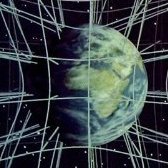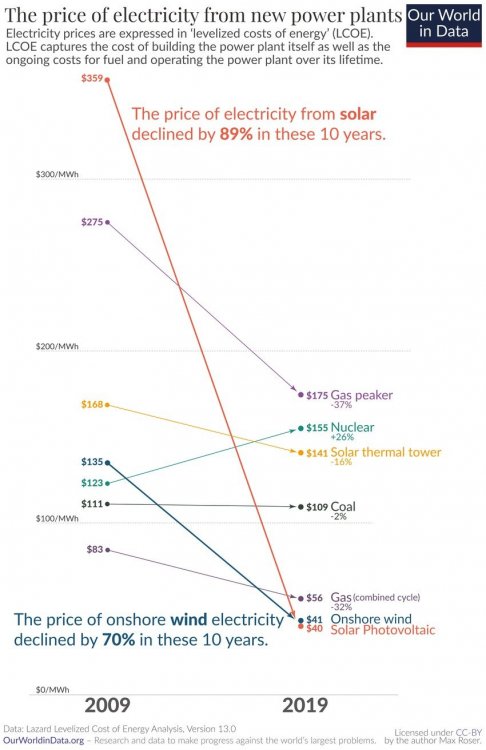Leaderboard
Popular Content
Showing content with the highest reputation since 05/04/23 in all areas
-
6 points
-
I asked our benevolent overlord Dave about the ad settings, and apparently Google AdSense enabled "vignette" ads without asking us. He's turned them off now. Hopefully that's the end of the issue and they don't find another more irritating thing to turn on.5 points
-
From a different perspective, it appeared you were badgering a newbie, @Benjamin Karl, who was not making a claim but rather requesting opinions on the claims made in a video. Whose points he courteously summarized when asked to. While he could be encouraged to dig deeper for other sources, I am not sure that your tone was that of a friendly guide in that quest.5 points
-
A marine algae and a nitrogen fixing bacteria have officially teamed up and the bacteria has become a new organelle inside a marine algae. The teaming up of nitrogen fixing bacteria and plants Is not a new (Azolla carolinensis) is one but the bacteria is just in a communal relationship with the plant but this bacteria has actually become an organelle inside the algae cells much like mitochondria or chloroplasts in other cells, this new organelle has been dubbed Nitroplast. https://newscenter.lbl.gov/2024/04/17/scientists-discover-first-nitrogen-fixing-organelle/ I am remembering reading of another animal that has evolved something similar that allowed it live in anoxic water in the black sea. If I remember correctly it was a ctenophore, anyone remember this?4 points
-
This is sad news. He was one of the great philosophers of our time. He belongs to one of the most science oriented philosophers and one of the most honest thinkers I have known during my philosophy study. He didn't spare anybody with too naive ideas, be it materialistic or dualistic, but he always was kind, never attacking people personally, but critical reflecting on their ideas. He was able to show that it is possible to have a theory of consciousness, without leaving a physicalist ontological stance. Many people thought that his book 'Consciousness Explained', should have been titled 'Consciousness Explained Away', but I certainly do not agree with that. Consciousness exists, but it can be explained. Same for free will. He could explain how a personal and societal relevant concept of free will can go perfectly together with determinism, where others keep sticking to either 'magical free will', or denying free will altogether. In his broader ideas, he was an atheist and humanist. I do not know much about his personal life, but at least I know he also knew how to enjoy the pleasant sides of life. Enjoyer of (red?) wine, making his own cidre, harvesting the apples himself. I remember I once saw a video, where he was sitting on his tractor. I think he lived a very fulfilled life. We should all be glad that he lived his life as he did. I will miss the many new ideas he could still have found, even in his higher age. A loss for the philosophical world and many other people who are, and might still be, inspired by his thinking.4 points
-
4 points
-
I agree. The political right and maga-class has been getting beyond ridiculous in ostracizing people who refuse to tow the party line and repeat the lies, casting out anyone deemed to be "others." It demands a level of purity nobody can ever maintain, and it's pretty sad that their views can't hold up to even remedial scrutiny.4 points
-
The solution is for people who are not themselves autistic, and who evidently don’t understand what autism even means, to stop proposing “solutions”. I am autistic, and I am not a problem that needs to be solved.4 points
-
Wow, so much to unravel here. Yes. The scientific background was in the open. So it would be just a matter of time. And then the point Swansont mentioned: That is true, more or less. But Japan simply did not capitulate. So the war could have taken much longer, taking many lives of American soldiers. Yes, but only after Germany was defeated. Heisenberg was in charge. The infamous meeting between Heisenberg and Bohr in 1941, gave the latter the impression that the Nazis were making serious work of the atomic bomb, and brought this impression to the US. Yep. I have seen the 'atom cellar' in Haigerloch: Does not quite compare to Los Alamos, is it? I would not put my hand in the fire for this, but it surely was a reason: Truman said something like this about the Soviets and the atomic bomb: "Now we have a real hammer on those boys". Another reason might have been to have a 'real live test'. A hint for this is the second bomb. One of the A-bombs was a U-235, the other a plutonium bomb. Wouldn't it be interesting to compare their effects 'in the field'? About the capitulation of Japan: there was a struggle between the civilian government and the military. The government wanted to give up, the military wanted to fight until the bitter end. One of the struggling points was the position of the emperor. The US wanted an unconditional capitulation, the Japanese government found that the position of the emperor could not be discussed. In the end the Japanese government made a very unusual proposal: let the emperor decide. In the meantime the first atomic bomb was dropped. If this fact had an influence on the decision of Hirohito is not known, fact is that he chose to capitulate. His speech in which he called for the capitulation was recorded, to be brought to the Japanese radio studios. Radical militaries tried to steal the recording on its way to the radio station, but they did not succeed. Hirohito's speech was broadcasted, and Japan capitulated. And the US more or less let the emperor untouched. Had the US made it known that the emperor could stay earlier, Japan might also have capitulated earlier. Maybe the A-bombs would not have been necessary. Main source: Bert Röling, who was a.o. member of the International Military Tribunal for the Far East (also called the Tokyo Tribunal, similar to the Nürnberg Tribunal in Germany). Hmmm. Lise Meitner and Otto Frisch were hardly Nazis, they were Jewish and fled Germany in 1938. Otto Hahn: Fritz Strassmann: So four of the 'main characters' were definitely not Nazis. Equating 'German' and 'Nazi' is simply wrong, also during WWII.4 points
-
4 points
-
“what makes this fee revolutionary is that it will apply to emissions that don’t happen on European soil. The EU already puts a price on many of the emissions created by European firms; now, through the new Carbon Border Adjustment Mechanism, or CBAM, the bloc will charge companies that import the targeted products — cement, aluminum, electricity, fertilizer, hydrogen, iron and steel — into the EU, no matter where in the world those products are made.” https://knowablemagazine.org/content/article/food-environment/2024/big-boost-europe-carbon-neutral-goals-cbam This removes incentives to move carbon-intensive industry out of the EU, since that won’t sidestep tariffs any longer. The tariff accounting includes the electricity used for production, so there’s an incentive for business exporting to the EU to use green energy4 points
-
The CEO of IKEA is now the Prime Minister of Sweden. He is currently assembling his cabinet.4 points
-
45 years ago President Carter has helped me to escape from the USSR.4 points
-
4 points
-
Alkonoklazt has been suspended for a week because staff would like a break from all the rebellion against the system.4 points
-
Perhaps we can dispense with the notion that he’s a genius, and stop paying attention to his nonsensical ramblings.4 points
-
4 points
-
4 points
-
Identity is about who we are and how we identify ourselves to others. I could tell you I identify as a father, and while I could share pictures of me with my kids or submit to a paternity test to meet your arbitrarily high threshold in the name of science, most commonly we simply accept my statement as true since it’s ME telling YOU how I identify MYSELF. Likewise, I might identify as a baseball fan. I could produce tickets to the games I’ve attended and post all the games I’ve watched on TV in the past year and even all the times I’ve participated out on the diamond with friends, but most commonly my saying “I identify as a baseball fan” is sufficient based on my say so alone. You don’t ask to test it and submit it for peer review. Perhaps I was born in Russia then later moved to Germany. I could show you my passport and citizenship papers, but if I tell you I now identify as German, that really ought to be enough no matter how much you love the motherland and hate that I’ve defected. Perhaps I was given the name John at birth, and now tell you I instead identify myself as Bruce or Loretta. You don’t get to tell me I’m not allowed to do that like some entitled overseeing brat. And on and on and on ad infinitum … I could identify as a reader, or an audiophile, or as an art lover, or a car collector, or a weapons expert and cigar aficionado, a brewer, a builder, a lover of memes… and you wouldn’t sit here demanding that I produce scientific evidence to support these. It’s about ME telling YOU how I identify MYSELF, and you don’t get to tell me I’m wrong no matter how forcefully you disagree with the identity of myself I’ve expressed. It’s simply not your place. End program. Do not pass Go, do not collect $200. YOU have no say in anything related to MY identity, and gender identity is obviously no different.4 points
-
4 points
-
@Moontanman I wonder why you buy so much into 'aliens' and 'government secrecy'. First, on physical grounds, it is extremely, nearly impossible, that aliens visit us. Special Relativity sets a clear limit to travel speed. G-forces, and collisions with dust particles set high limits. Of course, slowly travelling, with generation spaceships cannot be excluded, as von Neumann probes (but then its not aliens visiting us, but their probes, that should be able to navigate autonomously, find out by themselves what is interesting, etc). Simply said, it needs a lot of additional hypothesis that we even do not know are possible. Second, most of the UFO sighting have earthly explanations. Reaching from simple explanations (Venus, Jupiter and Mars), weather phenomena, satellites, (experimental) planes, weather (and solar!) balloons, etc), to sightings that cannot be explained, but even the latter does not mean 'aliens!' 'Unexplained' means unexplained, nothing more. Not very satisfying of course, but it is as it is. Third, UFO sightings tend to come in crazes: one fascinating UFO sighting, and often it is followed suddenly by many more UFO sightings. For me a clear indication, that people are more inclined to 'look up', and then immediately take the most improbable explanation: aliens, or even worse, an alien invasion is imminent. Fourth, for government secrets, there is a pretty simple explanation: when they are doing experiments with 'flying objects' they might be interested in people that do not pay too much attention to anomalous flying objects. This is at least my explanation for Edward Condon's very unscientific approach. Just deny that they exist, declare that all UFO sightings are fully explainable, and all observers will only think 'hey, funny what I see there, but it cannot be UFOs, because they do not exist'. That backfired of course completely, and only contributed to conspiracy theories. Fifth, a whole lot of people just want 'aliens!' to be true. They do not want to falsify (in the Popperian sense of the word) the alien hypothesis, they take every unusual sighting as confirmation of their belief, even if there are simple explanations. The solar balloon sighting, and the reactions on Youtube are great examples. The huge majority says 'aliens!, then come many with secret flying things from the Air Force, (or NASA), and then only very few come with trying to find earthly explanations, and veeeery few with the correct explanation. And nobody reacts on these correct explanations. There is no rational discourse at all. Considering all this, the question is if UFOs are a legitimate research object for science. You maybe surprised, but my answer is 'yes'. But first all these explainable sightings must be filtered out, and there must be tangible proof. And it should be serious researchers, not Loebs, who are the pseudo-scientific variants of alien believers.3 points
-
https://www.telegraph.co.uk/obituaries/2024/04/19/daniel-dennett-philosopher-atheist-darwinist/ Daniel Dennett, the American philosopher, who has died aged 82, was, with Richard Dawkins, a leading proponent of Darwinism and one of the most virulent controversialists on the academic circuit. Dennett argued that everything has to be understood in terms of natural processes, and that terms such as “intelligence”, “free will”, “consciousness” “justice”, the “soul” or the “self” describe phenomena which can be explained in terms of physical processes and not the exercise of some disembodied or metaphysical power. How such processes operate he regarded as an empirical question, to be answered by looking at neuroanatomy – the engineering involved in brains. Darwinism, to Dennett, was the grand unifying principle that explains how the simplest of organisms developed into human beings who can theorise about the sorts of creatures we are. In Consciousness Explained (1991), he argued that the term “consciousness” merely describes “dispositions to behave” and the idea of the “self” was nothing more than a “narrative centre of gravity”. In Darwin’s Dangerous Idea (1995) he went further than any other philosopher or biologist in arguing that the whole of nature, including all individual human and social behaviour, is underpinned by a Darwinian “algorithm” – a single arithmetical, computational procedure. Borrowing Richard Dawkins’s notion of “memes” (“bytes” of transferable cultural ideas encompassing anything from a belief in God to an individual’s fashion tastes), Dennett argued that the Darwinian algorithm also explained, for example, the musical genius of JS Bach, whose brain “was exquisitely designed as a programme for composing music”. Dennett’s philosophy undercut any idea of teleology or “purposive” creation....3 points
-
It gives me heartburn. And Trump is only the half of it. The other part is that it turns out half my neighbors think like he does. And it's not even the politics that bother me so much since I can accept policies that are not to my liking. It is the fact that by most measures he is a despicable human being, and half of my fellow Americans find that acceptable. I honestly didn't know that so many people could be like that. I don't read much political news anymore beyond the headlines. It is too much like watching your neighbors cheer for those who sponsor dog fighting or human trafficking. It's just kind of depressing.3 points
-
And this is the mistake many folks make when trying to interpret complex issues by using single words to define them. I know a LOT of people who think the way you do, that "liberal" means "anything goes" and conservative means "responsible". I also know a LOT of people who think conservative means "fearful" and "ignorant" and "stuck in the mud", while liberal means "progressive" and "hopeful" and "forward-thinking". This is the problem with using these terms with each other. It's hard to know how a person has been influenced when they use such broad terms. I'm not sure hubris is the problem in the US. In trying to focus on capitalism to the exclusion of any other ownership principles, we're allowing our leadership to pretend to care about us when their re-elections are really up to big corporations. We may find it hard to give up what we think we've earned, but I don't think it's out of pride. If the American public had any pride at all we'd gather to stop these stains on humanity from exploiting us even further (the CEO of Kellogg's recently claimed that if we're worried about the high price of food, we should eat Frosted Flakes for dinner). We make very little investment in The People. Everything goes to keep big corporations in business, including bailing them out with tax dollars when they mess up. I think we should focus on better social spending and representing the will of The People, and maybe then we can better assess whether this is a matter of hubris or not.3 points
-
Issue is that science as such does not play a big role. Or at least, it cannot solve the fundamental question underpinning the issue. We (humans) want to define things with clear delineation. Nature does not care much for that. And this opens up things for interpretation. Nature (and therefore science) does not define what people are so it is on society to decide on things. And as we see here, this particular interpretation is clearly morally and religiously motivated, with severe implications.3 points
-
3 points
-
If you want to make arguments to support these assertions you are welcome, but stating them doesn't make them true. In my experience pretty much only staunch doubt, deny, delay opponents of addressing global warming seem chronically unable to update what they are sure they know about climate science or climate policy or options for doing something, like renewable energy. Around 3/4 of all new electricity generation being added around the world is now solar and wind, on their merits, as commercial decisions - not out of deep commitment to zero emissions (although the possibility of emissions accountability emerging in the future does figure into investment decisions) but because of this - .3 points
-
3 points
-
I wonder if there is a language difficulty because you seem to be asking questions (which is good) rather than trying to preach. But I would say that you are posting too much at once. So I am going to start with the first part of your post and begin to answer these questions. Then we can see how we go. So the Moon orbits the Earthonce every 27.3 days which makes it angular speed of 2π / (27.3 x24) radians per hour. This is approximately 0.01 rads/hr.. (It will become clear why I am using these units) The Earth also rotates at an angular speed of 2π/24 radians per hour Which is approximately 0.26 rads/hr. Since both rotations are in the same direction the net rotational difference is their difference or 0.26 - 0.01 = 0.25 rads/hr. The radius of the Earth is 6731 kilometres. So if a static bulge is to keep up with the moon is must travel at 6731 x 0.25 km per hour. This agrees with your calculation. A wave travelling at this speed is the basis of the simple dynamic theory. But this theory is only applicable within the following constraints. If the depth of the water is d in km then waves of wavelength L will propagate witha velocity of v = √(gL/2π) for waves in deep water. Where g is the acceleration due to gravity in km/hr2 which is 127008 km/hr2 This makes the wavelength as (1600*1600*2π) / 127008 or 127 km. However this formulae is only valid for d/L greater than 0.5. Now the average depth of the ocean is around 3.6 km and tha max depth is only 11 km (NOAA) So dl << 0.5 and the condition is not satisfied for the deep water formulae. Which makes the ocean too shallow for a simple resonant system. So instead we must use the shallow water which then includes the effect of the bottom and other topography. The formula for such waves is given by v = √(gd) Which is good to around (1600 * 1600) /127008 km Which is approximately 20km. This emans that the wave equation is no longer homogenous (equal to zero in this case) There is now a forcing term involved as well and the theory is known as forcing. Does this help and do you wish to continue ?3 points
-
Counterpoint: no, it's not. You choose to interpret it that way, which is followed by ranting about how stupid the notion is. But it's your choice. Even in biological evolution, the origin of life is excluded from the theory - that's abiogenesis. So your insistence that a program has to create itself is just performative nonsense.3 points
-
I suspect the reason that blame keeps getting heaped on Israel more than Hamas is because Hamas is no longer rampaging through Israel, but Israel is still rampaging through Gaza. Every time someone kills a child they invite criticism. In the beginning of this most recent mess Hamas received the lion's share of rebuke. Now that Israel is on the offensive it is they who receive the lion's share of the rebuke. I personally don't find that surprising at all. Once the fighting dies down I suspect there will be a more even-keeled evaluation of who is to blame for what.3 points
-
I think blaming Netanyahu is justified, just read through some international Israeli articles on that matter. He torpedoed paths to peace (regardless how strenuous they might have been ) and allowed money to flow to Hamas with the stated intention to weaken proponents of a two state solution. So at least factually there is some culpability, if folk co-developed a situation where terorists can thrive. So it does not seem one-sided, as I don't think anyone here is justifying Hamas. One could argue whether ge should be No1 or 2 or wherever, but faultless he and hardliners are not. The one-sided argument seems to me that it is all the Palestinians fault, without formulating what their alternatives were (beside thriving through blockades). If someone blamed all the Israeli as you did with Palestinians, you might have point, but I might have missed those, if they existed. And if you really want to narrow culpability to the direct actions only, then non combatant Palestinians should be equally excluded. Yet those are still dying. Finally, you seem to attribute intentions to posters. I am critiquing your arguments and extrapolated to what seemed to me the conclusions. I have made no assignment of guilt to posters, as that would be silly. Unless Netanyahu posted here or followers of Hamas. Palestinians and Israeli civilians are victims and it is hard for either group to take up responsibility either way. Both are not dying at the same rate historically, though. That is the issue with these actions and the seeming conclusion if executed unchecked. The US wars were a lesson I that regard.3 points
-
Then our instincts kind of suck given all the war, genocide, global warming, pollution, nuclear weapons, etc.3 points
-
A lot of people who find the holocaust horrible today, would have participated at the time. We're all a product of our social environment. I'm 73. When I was young, it would have been unthinkable that homosexual people ( the polite expression at the time ) could marry or adopt, or even hold a public position. You could hear the words "nigger" or "coon" in sitcoms, admittedly spoken by lowlife characters. But to say "fuck" on the air was unthinkable. Now you hear fuck all the time, but the racial slurs are absolutely barred, even in jest. All good stuff, but they are just examples of fundamental culture changes that are all good. But the people haven't changed, it's the culture that's changed. Take people born today, transport them back to the Nazi era, and they would do the same. Nazi Germany grew out of desperate times. People act differently under pressure. They tend to pick on anyone who stands out as different, and blame them for their problems. It's still happening in India, Bangladesh, Burma, China, and not too long ago in Northern Ireland. Those are just examples, not the whole picture. The common factor is human nature, it hasn't gone away, and it's not just Nazis on Jews.3 points
-
Holy feck, did you just troll me? Dude, no one who advocates a set population for the planet is advocating people dying. This is about family planning and a demographic shift to smaller families being a viable choice and one that is rewarded. i.e. fewer new people being born. I'll thank you also to skip the forced sterilization strawman, too.3 points
-
Saying it's relevant is not to say reducing population is THE solution, only that it may be part of a suite of solutions that protect arable land, wetlands, beaches, parks, wilderness preserves, watersheds, airsheds, oceans, etc which are vital to having a nurturing planet. Working against this common sense suite of solutions are toxic ideologies and religious beliefs, which sometimes foster a notion that my group is special and chosen and we should have large families and lots of room to push out the less-special people. And, allied with that, is the anthropocentric view that we can also push out other species who just don't matter as much. One reason I avoid trying to define a global carrying capacity is that quality of life is not easily rendered in numbers and constant over all bioregions. Phoenix is already overpopulated at a couple million, and is already massively dependent on resources imported from other areas, and struggling grimly to find enough water. The Mekong delta OTOH could probably handle more people, with its society having a more low-carbon lifestyle and immense biological richness and fecundity all around. That said, I haven't heard of too many places where ordinary people (not local business and tourism boosters) are crying dear god we just need more people! I live in a relatively sparsely populated place, and yet even here there has been a decline in many metrics of livability. My city is already prone to spells of poor air quality due to the bowl effect of hills, and the metro is a mere 120,000 people. It is dirtier, less walkable, the creek for which the town is named is threatened by runoff, traffic is ugly, people are less friendly, housing prices are insane and there is the unmistakable impression that if we could just stop growing for one freaking minute and catch our collective breath then we might be able to catch up on some of these problems. It is just not normal and healthy for human civilization to go from 3 billion people to 8 billion in less than my lifetime. Yes. I too have pointed this out in other threads. Western nations spread their rapacious level of consumption, both by stripmining resources of developing countries, and by selling a Western lifestyle to them. And places where population increase is rapid do then experience a double-barrelled blast of social and ecological problems. And there is the sad paradox of bringing in vaccines and reducing child mortality and better crop yields....all supposed to improve life...and then you have a disruptive rapid surge in population that later struggles to sustain itself when drought years come. This happened in the USA too, when too many people came in and grew crops on land really only suited for grazing sheep or cattle. The result was an eco disaster called the Dust Bowl. Millions of Californians are descended from the torrent of refugees it created.3 points
-
I don't assume that. I think the human population is underutilized, mismanaged, and kept barely above slavery in many parts of the world. I think the outrage of overpopulation is being manufactured by those who hoard resources and demean the labor of people. Rather than giving the resource hoarders more control over our reproduction, I'd like to try more cooperation and less competition, and try to distribute resources more efficiently and effectively for a larger percentage of the population. No more food rotting on docks because there's no profit in getting it to starving people, which will make them healthier and more able to continue their own prosperity. I'd like to start a cycle like that, because we know where the "overpopulation" cycle leads.3 points
-
3 points
-
By acknowledging it’s a war we can’t win and will never end, decriminalizing essentially all drugs, and replacing investments in private prisons with investments in rehabilitation centers, low cost housing, food programs, and vocational training. What would happen if we did this? The lives of many tens of millions of people would be better, including those in no way associated with modern day addicts. Sell it to the left by speaking of its morality and humanity. Sell it to the right by speaking of its direct connection to personal freedom and autonomy. Sell it to the middle by speaking of its higher ROI across metrics.3 points
-
I usually hear collectivism used as a broader term for any system where the welfare of the group is put before that of the individual. Everything from ancient Scandinavian societies up to modern Marxism. Collectivism is egalitarian and seeks to achieve economic equality through control of production and distribution. Decisions always defer to a group rather than an individual. If it's a company, workers share in profits and participate in decision making as equals. Statism specifically means, IIRC, a system where a central power structure controls social and economic affairs. Authoritarian governments tend to be statist. They can be a perversion of an egalitarian collectivist society, in many instances, with power concentrating centrally. In thr original collectivist meaning of communism, the concept of a "communist party" would tend to be contradictory.3 points
-
Hardly. These observations have been standard stuff for most of my lifetime (I'm 68). That's why you find the better run economies in Europe tend to practice a form of mixed economy, sometimes referred to as social democracy. In short, people have learnt what to take from the ideals of socialism and blend those with regulated market economic mechanisms to get the necessary feedback from consumer to producer. What has become equally clear over the last couple of decades is that inadequately regulated market mechanisms can also fail to deliver for citizens. The water and railway companies in Britain are examples, as is the health system in the USA. What we are also now seeing, with the new transnational IT entities such as Amazon, or Zuckerberg's empire, is that it is becoming a struggle to prevent the development of international monopolies which hand an unacceptable degree of control to producers, while disempowering consumers, just as much as any state-planned enterprise in the old USSR. It seems to me issues like these are the real food for thought nowadays.3 points
-
Paper such as those referenced in the article on fish and other animals have raised broad question regarding the nature of self awareness (is it binary or gradual, for example) and pretty much since folks did the original experiment it was hotly discussed what it actually measured. I think there are (at least) two major changes in behavioural biology which ultimately will tip the scale toward the gradualist school of thought. One is a departure of using mammalian behavior as hallmark of complex behaviour. A large number of experiments on birds, mollusks (especially octopus but also other invertebrates) have challenged the notion of what could be considered higher cognitive functions. A second movement has increasingly shown that many classic behavioural studies could be very skewed, as they often ignore individual behavioral differences. Animals that do not cooperate with certain experiments, are excluded, for example. But it is possible that the cooperating animals are in fact only showing a sliver of the behavioural repertoire.3 points
-
3 points
-
In addition to swansot's comment, putting a spy satellite that high would make it pretty useless as its image resolution would not be very good. Generally, they would be put into much lower polar orbits. So the Earth rotates under it, allowing it to observe pretty much any point on the surface over time. The particular orbit in the image is a Sun synchronous one. This means that as the satellite passes over a particular point of the Earth's surface, it is being lit the same by the Sun. This assures that differences in images between successive passes aren't due to different lighting angles from the Sun.3 points
-
3 points
-
Could it be that watching naked girls dance around a bonfire is more fun than listening to a preacher tell you how badly you are going to burn in hell if you don't stop watching naked girls dance around a fire?3 points
-
Still around... 79 in July but still doing OK...love a VB or two or three... Yes, I was pretty convinced that there was one or two making a mockery of it, considering I was continually supporting the scientific view and research and obviously the lack of evidence at this time. That view is still supported and actually re-enforced...but only a small reason for my absence, as I have been in Fiji also for extended stays.3 points
-
Was using experience in an epistemically neutral sense. And was talking about AGI at the level of a machine that can learn, modify its own programming, exhibit functional plasticity, and (why am I needing to repeat this) replicate at least some of the causal powers of a brain. Please stop caricaturing this as spreadsheets or thermostats or whatever. While one may reasonably dismiss simple programmed devices as incapable of subjective states (aka "qualia"), there is as yet no definitive disproof that an advanced AGI could not have them. That's not being mystical, that's just keeping an open mind, since we don't yet know all the causal features of human cognition or if they could be implemented in some other substrate than protein-lipid pudding.3 points
-
Took exactly one post to go from 'never intend to offend' to 'intend to offend everyone within earshot'. I often find religious people to be some of the nastiest hypocrites around.3 points

























